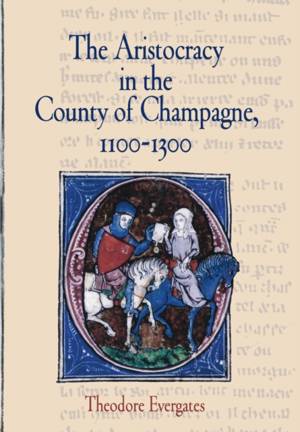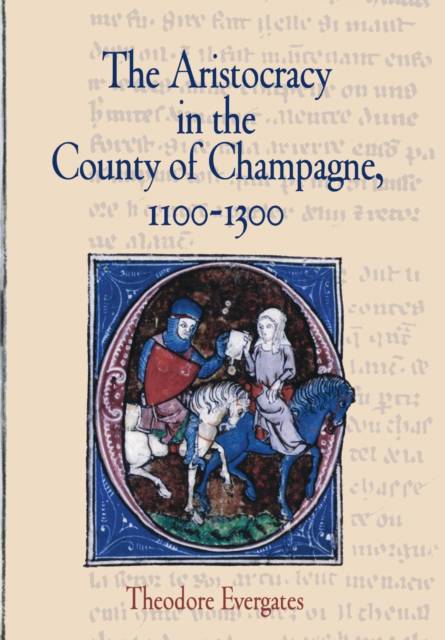
- Retrait gratuit dans votre magasin Club
- 7.000.000 titres dans notre catalogue
- Payer en toute sécurité
- Toujours un magasin près de chez vous
- Retrait gratuit dans votre magasin Club
- 7.000.0000 titres dans notre catalogue
- Payer en toute sécurité
- Toujours un magasin près de chez vous
Description
The Aristocracy in the County of Champagne, 1100-1300 Theodore Evergates "A remarkable achievement."--The Medieval Review "Magisterial. Evergates makes historical documents come alive with an assurance and ease. Ever alert to the telling detail, the vivifying anecdote, he serves up a feast supremely valuable for the expert and accessible and fascinating for the generalist."--William Chester Jordan, Princeton University "Every now and again a book appears that challenges older assumptions and historiographical constructions in such persuasive terms that it is able to redefine the way we look at the past. Theodore Evergates's most recent study of the aristocracy of Champagne is just such a book. . . . In clear and precise prose Evergates offers a powerful reassessment of the medieval conjugal unit and the way in which men and women took part in property holding and social relationships."--Medieval Review Theodore Evergates provides the first systematic analysis of the aristocracy in the county of Champagne under the independent counts. He argues that three factors--the rise of the comital state, fiefholding, and the conjugal family--were critical to shaping a loose assortment of baronial and knightly families into an aristocracy with shared customs, institutions, and identity. Evergates mines the rich, varied, and in some respects unique collection of source materials from Champagne to provide a dynamic picture of a medieval aristocracy and its evolving symbiotic relationship with the counts. Count Henry the Liberal (1152-81) began the process of transforming a quasi-independent baronage accustomed to collegial governance into an elite of landholding families subordinate to the count and his officials. By the time Countess Jeanne married the future King Philip IV of France in 1284, the fiefholding families of Champagne had become a distinct provincial nobility. Throughout, it was the conjugal community, rather than primogeniture or patrilineage, that remained the core familial institution determining the customs regarding community property, dowry, dower, and partible inheritance. Those customs guaranteed that every lineage would survive, but frequently through a younger son or daughter. The life courses of women and men, influenced not only by social norms but also by individual choice and circumstance, were equally unpredictable. Evergates concludes that imposed models of "the aristocratic family" fail to capture the diversity of individual lives and lineages within one of the more vibrant principalities of medieval France. Theodore Evergates is Professor of History at McDaniel College. He is the editor of Feudal Society in Medieval France: Documents from the County of Champagne and Aristocratic Women in Medieval France, both also published by the University of Pennsylvania Press. The Middle Ages Series 2007 424 pages 6 1/8 x 9 1/4 3 illus. ISBN 978-0-8122-4019-1 Cloth $95.95s £62.50 ISBN 978-0-8122-0188-8 Ebook $95.95s £62.50 World Rights History
Spécifications
Parties prenantes
- Auteur(s) :
- Editeur:
Contenu
- Nombre de pages :
- 424
- Langue:
- Anglais
- Collection :
Caractéristiques
- EAN:
- 9780812240191
- Date de parution :
- 31-10-07
- Format:
- Livre relié
- Format numérique:
- Genaaid
- Dimensions :
- 160 mm x 234 mm
- Poids :
- 771 g

Les avis
Nous publions uniquement les avis qui respectent les conditions requises. Consultez nos conditions pour les avis.






